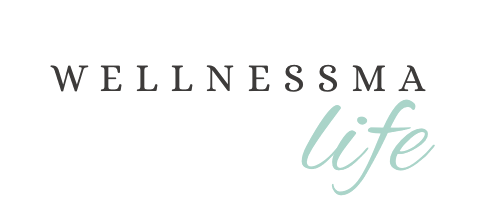the Importance of No Screen Time for Toddlers:Toy Ideas and Activities
In today’s digital age, many parents face the challenge of managing screen time for their toddlers. Limiting screen time is crucial for a child’s development, as it encourages imagination, motor skills, and social interactions. A environment with minimal screen exposure, parents can promote healthier habits and more engaging play experiences.

There are many ways to entertain toddlers without relying on screens. Simple toys like building blocks, art supplies, and puzzles provide an opportunity for creative play. Interactive activities, such as storytime and outdoor exploration, can enhance cognitive skills and strengthen the parent-child bond.
To inspire us parents seeking alternatives, numerous engaging ideas and toys are available. From games to sensory play items, these options not only stimulate there minds but also help develop essential life skills.
Understanding Screen Time for Toddlers

Screen time can significantly impact a toddler’s development. It is essential to be aware of the negative effects of excessive usage.My daughter has focus better when I start applying this.It been a real game changer
Effects of Excessive Screen Time
Excessive screen time can lead to various developmental issues in toddlers. Some of the primary concerns include:
- Language Delay: Limited verbal interaction while using screens may hinder language development.
- Social Skills: Reduced face-to-face interactions can affect the development of essential social skills.
- Sleep Disruptions: Increased screen time, especially before bed, can interfere with sleep patterns.
Studies suggest toddlers exposed to screens for extended periods are at a higher risk for issues such as obesity and attention problems. Parents should be mindful of these effects and encourage alternative activities.
Recommended Screen Time Guidelines
In these time I know that can be hard trust me, so I would say for toddlers it might not always be the easiest. Getting on a routine is gonna help to balance screen time to support healthy development. Consistent monitoring of screen use helps maintain these guidelines, fostering a positive environment for growth.
Benefits of No Screen Time

No screen time for toddlers offers a lot of advantages. The following areas highlight the key benefits, focusing on cognitive abilities, physical health, social interaction, and sleep quality.
Cognitive Development
Activities like building blocks, puzzles, and role-playing games encourage creativity. These hands-on experiences enhance memory retention and language development.
Physical Health
Reduced screen time contributes positively to a child’s physical health. Toddlers who engage in active play are more likely to develop strong motor skills and maintain a healthy weight, and I have seen it from my daughter.
Social Skills
No screen time allows toddlers to practice and refine their social skills through direct interaction. They learn to share, cooperate, and communicate effectively with peers.
Sleep Patterns
Screen time excessively can disrupt sleep patterns in toddlers, making it difficult for them to wind down.I tend to do no screen time in morning. I realized it easier and more efficient for development.
If your someone who works in morning then try this for later hours.Engaging in quiet activities, like reading or playing with soft toys before bed, aids in establishing a calming atmosphere.

Selecting the right toys for toddlers is essential. The right choices can enhance learning, creativity, and physical activity, providing a well-rounded play experience.
Educational Toys
Educational toys stimulate development in toddlers. They can range from alphabet blocks to puzzles that promote problem-solving skills.
Examples of educational toys include:
- Shape sorters: Help toddlers learn about shapes and enhance hand-eye coordination.
- Counting bear sets: Introduce basic math concepts through interactive play.
- Musical instruments: Encourage rhythm and auditory skills.
Selecting toys that have numbers, letters, or colors can create early literacy and skills, choosing age-appropriate items that challenge without causing frustration.
Creative Play
Creative play is important for toddlers as it nurtures imagination and innovation. Toys that allow for unrestricted expression encourage exploration of various artistic mediums.
Ideal creative toys include:
- Art supplies: Non-toxic crayons, washable markers, and paper for drawing.
- Building blocks: Encourage structural thinking and spatial awareness.
- Craft kits: Introduce toddlers to simple crafts that develop fine motor skills.
These selections not only engage toddlers but also promote self-expression, which is crucial for emotional development.
Physical Activity Toys
Physical activity is important for toddlers to develop motor skills and coordination. Toys that encourage movement can help them release energy and contribute to overall health.
Recommended physical activity toys are:
- Push toys: Help toddlers strengthen their legs as they learn to walk.
- Rocking horse are any animal: Enhance coordination and build muscle strength.
- Outdoor climbing structures: Promote physical challenges and improve balance.
Toys that require movement should be safe and appropriate for the child’s age. They encourage active play, which is essential for a healthy lifestyle.
Imaginative Play
Imaginative play allows toddlers to reenact experiences and explore different roles. This type of play is important for social skills and emotional intelligence.
Popular imaginative play toys include:
- Dollhouses: Help toddlers create stories and develop empathy through role-playing.
- Dress-up costumes: Encourage creativity and self-expression.
- Play kitchens: Foster collaborative play and introduce concepts related to cooking and sharing.
- Stuff animals an dolls: Help them learn interactive skills and how to be independent
These toys create opportunities for toddlers to express themselves and learn about social interactions. They should offer a variety of scenarios for enriched imaginative play.
Activity Ideas Without Screens

Engaging toddlers in activities without screens fosters creativity, social skills, and physical development. Various options are available, promoting active play and imaginative exploration.
- Sensory Play: Use materials like rice, beans, or playdough.
- Building Blocks: Encourage spatial awareness and problem-solving.
- Reading Together: Choose age-appropriate books to stimulate language development.
- Outdoor Play: Explore nature, ride bikes, or play simple games.
By incorporating a variety of toys and activities. This approach leads to improved attention spans and better social interactions among children. Prioritizing play and exploration over screens lays a solid foundation for lifelong learning and health impact reasons.



